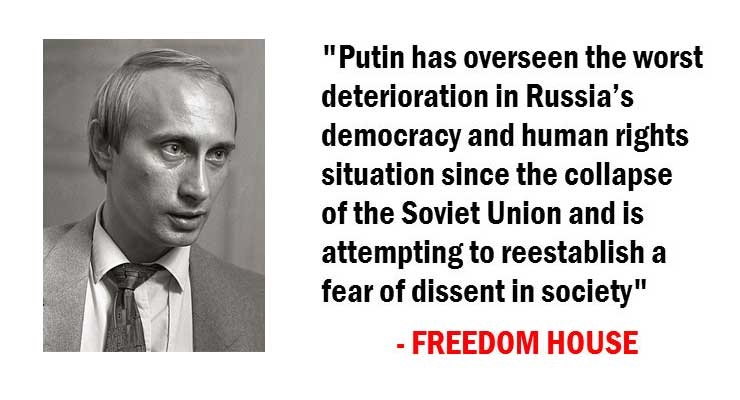
Advisers to President Vladimir Putin have questioned the legality of a slew of criminal cases opened against members of the Jehovah’s Witnesses in Russia and asked the General Prosecutor’s office to protect the group’s freedom of belief.
Russia’s Supreme Court ruled in April last year that the Jehovah’s Witnesses were an “extremist” organisation and must disband, a move the group unsuccessfully appealed.
Since then, at least 19 members have been detained on criminal charges in Russia with one, Danish citizen Dennis Christensen, now held for more than a year and put on trial for extremism.
The Russian Presidential Council for Civil Society and Human Rights, which advises Putin but does not have policy-making powers itself, said it believed law enforcement agencies were flouting the constitution and misinterpreting last year’s ruling by locking people up for collective bible reading and praying.
“It cannot but be a cause for concern because the criminal prosecutions and detentions have taken on a systemic character,” the council said in a statement which the Jehovah’s Witnesses publicized on Thursday.
“The situation evokes associations with the Soviet period when Jehovah’s Witnesses suffered groundless repression because of their faith.”
The fact that the council has intervened on the group’s behalf does not necessarily mean that Putin will take up their cause though the subject is likely to be raised at the council’s next meeting with the Russian leader.
‘Glimmer of optimism’
The Jehovah’s Witnesses, a United States-based Christian denomination known for its door-to-door preaching and rejection of military service and blood transfusions, has around 170,000 followers in Russia.
The U.S. State Department on Monday said it was deeply concerned by what it described as the growing number of religious prisoners held in Russia, saying that people were being persecuted “in retaliation for peaceful religious practice.”
And on Tuesday, more than 60 well-known Russian writers, historians and rights activists signed an appeal demanding the authorities stop prosecuting the group, describing the legal onslaught on its members as a test for Russian society.
Yaroslav Sivulskiy, a member of the European Association of Jehovah’s Witnesses, said on Thursday the council’s intervention had given his group “a glimmer of optimism.”
“We hope that common sense will prevail and that someone wise … will say that this has all gone too far,” he said. “If the authorities can do this to us they can apply the same logic to do the same to anyone in Russia.”
Leave a Reply